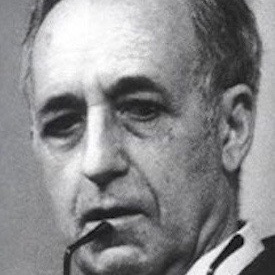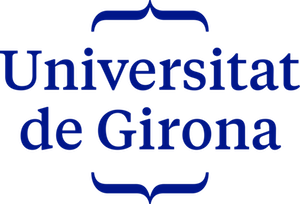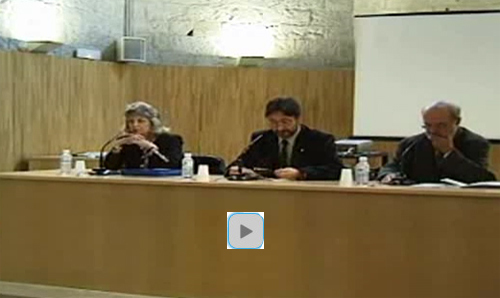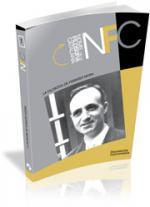
Josep Ferrater Mora
José Ferrater Mora (Barcelona, 1912-1991). After studying philosophy at the University of Barcelona, defeat in the Spanish Civil War led him first to Paris, then to Cuba and Santiago de Chile, until, from 1949, he settled permanently in the United States where he carried out a long period of university teaching and research at Bryn Mawr College until his retirement as Professor Emeritus in 1981. He was a visiting professor at many American and European universities, and was named Doctor Honoris Causa by several of these institutions. He is the author of the famous Dictionary of Philosophy and many other philosophical works, including El ser y la muerte (The Being and the Death), Fundamentos de Filosofía (**Foundations of Philosophy), Cambio de marcha en filosofía (Changing the Course of Philosophy), De la materia a la razón (From Matter to Reason). He is also the author of several novels. Ferrater Mora is unanimously considered the most internationally renowned Catalan philosopher of the 20th century.
Programme
The Philosophy of J. Ferrater Mora
Girona, 21 and 22 November 2002
(Click here to download the program in pdf)
Thursday, November 21st
FERRATER MORA and the History of Philosophy
- Opening of the Symposium, by Josep-Maria Terricabras, Priscilla Cohn Ferrater Mora and Ramon Moreno Amich
- El peso de la Historia en el corpus filosófico de Ferrater Mora, by José Luís Abellán (Universidad Complutense de Madrid)
- La estancia de Ferrater Mora en Chile. Filosofía y exilio, by Julio Ortega Villalobos (Chile)
- La psicología en el Diccionario, un estudio a través de sus sucesivas ediciones, by Helio Carpintero (Universidad Complutense de Madrid)
- La ironía y el apocalipsis, by Antoni Mora (Madrid)
- El llegat de Ferrater Mora, by Josep-Maria Terricabras - Debate
Friday, November 22nd
ONTOLOGY, THEORY OF KNOWLEDGE, ETHICS
- Unidad del ser, unidad de la ciencia, by Carlos Ulises Moulines (Universität München)
- El mundo desde dentro. Una aproximación al discurso ontológico de Ferrater Mora, by Carlos Nieto Blanco (Universidad de Cantabria)
- Ferrater Mora and Dewey on the Foundations of Philosophy, by Gary Calore (Penn State University) - Debate
- El encuentro de Ferrater y Aranguren en la Ética, by Teresa Rodríguez de Lecea (Universidad Complutense de Madrid)
- La razón práctica en José Ferrater Mora, by Esperanza Guisán (Universidad de Santiago de Compostela)
- Conferència de Clausura The Ethics of José Ferrater Mora and Animal Rights, by Priscilla Cohn Ferrater Mora (Penn State University)
Papers
Thursday, November 21st
- La noció de seny segons Ferrater, by Misericòrdia Anglès (Universitat de Barcelona)
- El problema de la mente en el pensamiento de Ferrater Mora, by José Luis González Quirós (Instituto de Filosofía – CSIC)
- What lies behind Ferrater’s concern with style?, by Marta Masergas (Universitat de Girona)
- Ferrater Mora y la falacia naturalista de G. E. Moore, by Paloma Díaz (Universidad de Santiago de Compostela)
- José Ferrater Mora y la editorial Cruz del Sur en Chile, by Nathalie Terryn (Université Charles-de-Gaulle Lille III)
Publication
In 2007 the first volume of the series “Names of Catalan Philosophy” dedicated to José Ferrater Mora was published under the title La filosofia de Ferrater Mora..
In the introduction: “This volume shows that Ferrater has not had to pay the price that threatens the independent thinker perhaps because his Diccionario de Filosofía has obtained such a large circulation. An examination of the contents of this volume not only reveals things about its authors but also much about Ferrater’s thought, although perhaps not in the line one might expect; the great variety of topics discussed shows a diverse group of thinkers - from different generations, different countries, speakers of different languages - who highlight many different aspects of Ferrater’s thought: his ontology, psychology and ethics, his use of history, his treatment of the mind, his notion of “seny”, his concern for style, his early development in Chile, some similarities or differences with the thinking of Dewey and GEMoore, and so on. “
See the review published in Enrahonar magazine, n. 44, 2010.
Other Activities
On Thursday, November 21, 2002, at 10 pm, a session of films by José Ferrater Mora was scheduled at the Cinema Truffaut. The program was as follows:
-
Everydayness (La vida quotidiana). 16 mm. color, 1970, 25 minutes. Everyday life is a story, but also an atmosphere
-
El mundo de Andratx. 16 mm., color, 1971, 16 minutes. Like a film-musical poem of a world that is about to be invaded by tourists
-
Lux perpetua. 16 mm, color, 1980, 27 minutes. Corfu’s dreamy vision
-
La piel de la tierra (Skin of the earth). 16 mm, color 1973, 14 minutes. Poem, visual and musical, of the surface of the earth, in different states from minor to major nudity.
Press releases
Click here to read the press summary of the Symposium dedicated to Josep Ferrater Mora.



